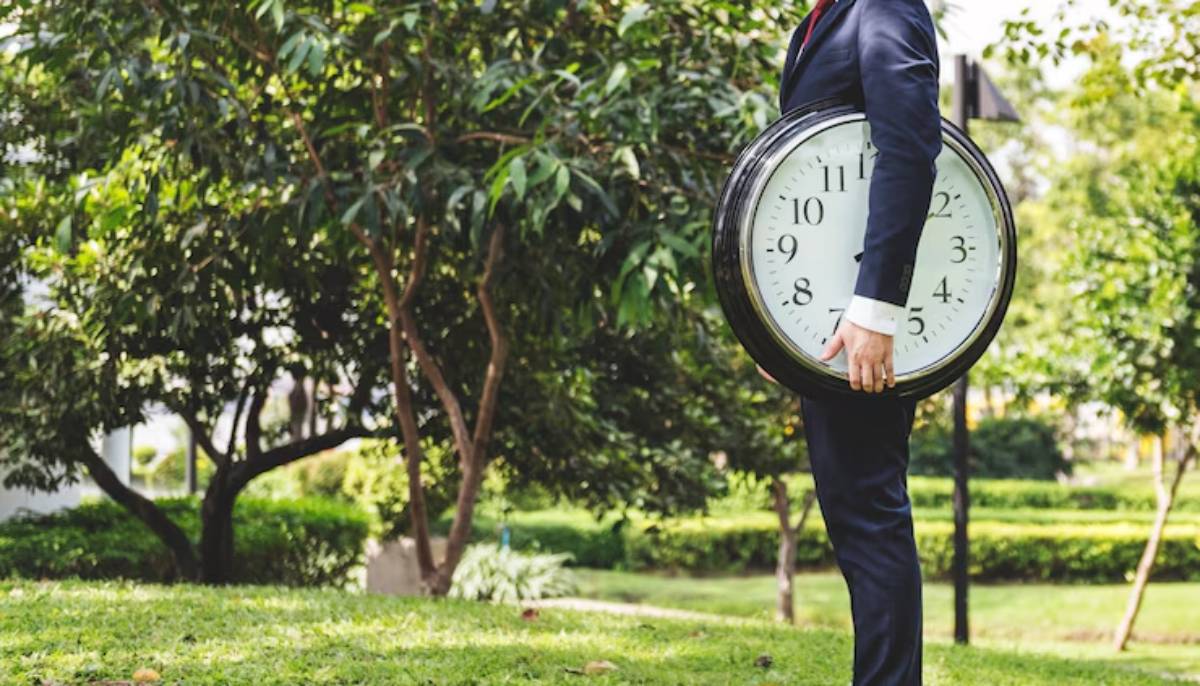
Using Holidays and Vacations to Boost Your Grades
Imagine this: it’s the first morning of your school break. You’ve finally escaped the daily grind of early alarms, back-to-back classes, and late-night study sessions. The calendar is wide open — freedom at last. But as the days blur into one another, guilt creeps in. That essay still isn’t started. That revision plan? Non-existent. You start to wonder… did I just waste this entire break?
Let’s flip that script. Your holidays don’t have to be an all-or-nothing choice between Netflix marathons and cramming. With a smart, balanced approach, holiday study plans can help you rest, recharge, and come back sharper than ever.
This guide will show you how to study over break without burning out, how to use your time wisely, and how to create genuinely productive vacations that support your academic goals, while still leaving room for fun.
Why Holidays Are a Golden Opportunity
Time, Space, and Less Pressure

During term time, your days are packed. You’re juggling lectures, assignments, societies, maybe even a job. Weekends disappear before you’ve caught your breath.
Holidays, however, give you something precious: unstructured time. Without daily commitments,
you can:
- Review difficult material at your own pace
- Get ahead on upcoming coursework
- Revisit feedback and refine study techniques
- Prepare for exams without panic
Even a few focused hours per week during holidays can pay off big when the term resumes.
A Chance to Reset Your Mindset

Academic success isn’t just about studying harder — it’s also about studying smarter. Holidays offer a chance to reflect on:
- What’s working in your current study routine
- What’s holding you back (procrastination, stress, distraction)
- What goals you want to hit next term
You’re not just giving yourself a head start — you’re setting the tone for a more intentional academic season ahead.
1: Set Clear, Personalised Goals
Before diving into books, ask yourself: What do I actually want from this break?
Think SMART:
- Specific: “Revise algebra chapters 1–3,” not “revise maths”
- Measurable: Track hours, pages, or topics
- Achievable: Be honest about your time and energy
- Relevant: Focus on subjects that need the most attention
- Time-bound: Give each goal a deadline
Example holiday study goals:
- Finish reading and annotating “Frankenstein” by 15th December
- Memorise 50 key biology flashcards by the end of the week
- Draft personal statement for uni application before the New Year
Real-life hack: Zara, a sixth-form student, uses the first morning of her holiday to plan three academic wins she wants before school starts again. She writes them on sticky notes and puts them above her desk — simple but powerful visual reminders.
2: Build a Flexible Holiday Study Schedule

Let’s be clear: holidays are for rest, too. The goal isn’t to replicate a full school day but to blend productivity with downtime.
Try this daily time-block formula:
- 2–3 hours of focused study (split into 2 sessions)
- 1 hour of light review or admin (e.g., reading notes, updating planners)
- Plenty of breaks and time off for fun, socialising, and relaxation
Spread these across 4–5 days per week, not all seven. Your brain needs full recovery days.
Sample Weekly Holiday Study Plan:
| Day | Morning | Afternoon | Evening |
| Monday | Revise Chemistry | Free | Review flashcards |
| Tuesday | Essay planning | Light reading | Watch documentary |
| Wednesday | Day off | Day off | Social event |
| Thursday | Past paper (Maths) | Break | Update planner |
| Friday | Reading & Notes | Art coursework | Movie night |
| Weekend | Rest + catch-up | Light journaling | Plan next week |
Use digital tools like Google Calendar, Notion, or Trello to organise your plan visually, or go old-school with a printed tracker and coloured pens.
3: Create a Dedicated Study Space (Even When Travelling)
Your environment matters. Studying in the middle of a family gathering, next to a blaring TV, won’t do you any favours.
Wherever you are, aim for a:
- Quiet, clutter-free space
- Desk or table with natural light
- Comfortable chair and good lighting
- Minimal distractions (put your phone on silent or in another room)
If you’re travelling or your home isn’t ideal, try:
- Local libraries
- Cafés during quiet hours
- Using noise-cancelling headphones and a tidy corner of your room
Travelling hack: Load digital notes, eBooks, and quiz apps on your phone or tablet before you leave — perfect for revising on planes, trains, or while waiting around.
4: Mix Active and Passive Learning
Let’s face it: re-reading textbooks for hours isn’t effective — or enjoyable. Variety boosts retention and keeps boredom at bay.
Alternate between:
Active Study Techniques
- Flashcards (digital or physical)
- Self-quizzing
- Explaining topics aloud (Feynman Technique)
- Mind-mapping concepts
Passive Study Activities
- Listening to subject-specific podcasts
- Watching educational videos (e.g., Crash Course, Khan Academy)
- Reading fiction related to your coursework
- Annotating past notes
Example: Ali, a history student, listens to history revision podcasts while walking his dog during the break. It’s light, consistent reinforcement without the pressure.
5: Stay Motivated Without Overloading
Even with the best plans, motivation can dip. Holidays are full of temptations: sleep-ins, late nights, and spontaneous trips. That’s okay — you’re human.
Use these strategies to stay on track:
- Mini rewards: After a study block, treat yourself (snack, episode, scroll time)
- Accountability buddy: Share your goals with a friend and check in weekly
- Daily checklists: Simple tick-off lists give a sense of progress
- Track your wins: Keep a log of completed topics, flashcards, or mock scores
Fun idea: Start a “Study Break Highlights” Instagram Story to track small victories and inspire others.
6: Balance It All with Real Rest
This part is crucial. A productive vacation includes time to sleep, laugh, explore, and unwind. You’re not a machine — rest, fuel focus.
Make space for:
- Sleep-ins without guilt
- Slow mornings with a book or tea
- Screen-free time outside
- Catch-ups with friends and family
- Creative outlets (art, music, baking, writing)
The key is intentional rest breaks that actually recharge you, not mindless scrolling or staying up until 3 a.m. watching reruns.
Wellness prompt: What three non-academic things do you want to experience this break? Write them down and prioritise them too.
7: Reflect Before Term Starts Again
Don’t wait until the night before school to panic-review. Give yourself a day or two to mentally transition back into study mode.
Reflection questions:
- What did I learn or improve over this break?
- What habits worked well?
- What topics still need attention?
- How do I want to structure my term ahead?
This closes the loop on your holiday study plan and gives you clarity for the next academic phase.
Tool to try: Use a bullet journal or Notion template to reflect and reset. It doesn’t need to be fancy — just honest.
Common Mistakes to Avoid
| Mistake | Better Approach |
| Overloading with unrealistic goals | Choose 3–5 meaningful academic tasks |
| All-or-nothing mindset | Aim for 2–3 quality hours, not perfection |
| Studying without breaks | Use Pomodoro or 90-minute cycles with rest |
| No plan at all | Sketch a loose weekly structure at a minimum |
| Ignoring mental health | Prioritise genuine rest and joyful moments |
Conclusion: Your Break Can Be Both Restful and Rewarding
You don’t need to sacrifice your holiday to boost your grades — you just need a little planning and a lot of balance. With the right mindset, you can use your breaks to recharge and refocus, so you return to class not frazzled, but confident and prepared.
A smart holiday study plan doesn’t take away your fun — it frees up your mind to enjoy the break guilt-free. Whether it’s an hour of flashcards, a quick podcast on your walk, or reflecting on your goals for next term, every small step adds up.
Your next move? Pick three goals for your next break. Create a basic weekly study outline. Choose one new rest activity that truly energises you.
We’d love to hear from you! What’s your favourite way to study over break? Have you found a balance that works for you? Share your best tips in the comments, send this to a fellow student, or subscribe for more mindful study strategies. Let’s make every break count for both your grades and your well-being.


